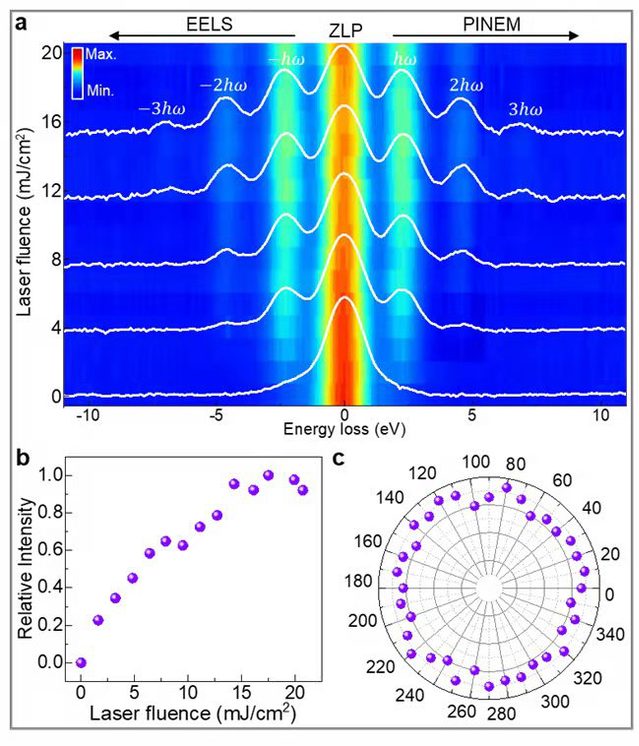Surface plasmon is the collective resonance oscillations of the free electrons on the surface of metals, which could confine the light to extremely small dimensions, thus realizing the manipulation of the light field at nanoscale. Such unique advantages have offered surface plasmon a broad prospect to be applied in various fields, including surface-enhanced Ramam spectroscopy, sensors, photovoltaic devices and quantum communication etc. The key to the design and development of functional devices based on surface plasmons is to understand its processes of generation, propagation, and attenuation, which all occur on the time scale of femtoseconds and the length scale of nanometers. Thus, it is of great significance to measure the evolution of surface plasmons directly with appropriate spatiotemporal resolution.

The team led by Professor Fu Xuewen from the Ultrafast Electron Microscopy Laboratory, School of Physics, Nankai University, recently cooperated with the team led by Professor Yimei Zhu from the Brookhaven National Laboratory, and other research teams. Based on the home-made four-dimensional ultrafast transmission electron microscope (TEM) and using the previously developed photon-induced near-field electron microscopy (PINEM) technique via free electron-photon interaction (Nat. Commun. 2020, 11, 5770), the femtosecond laser-induced surface plasmon distribution and its evolutionary dynamics on silver films have been directly visualized at the femtosecond and nanoscale, which provides guidance for the design and application of plasmon functional devices. The project has recently published under the tile of Nanoscale-Femtosecond Imaging of Evanescent Surface Plasmons on Silver Film by Photon-Induced Near-Field Electron Microscopy in the Nano Letters, an academic journal of great international influence.
The Paper Link: https://pubs.acs.org/doi/10.1021/acs.nanolett.1c04774



